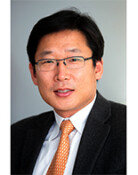POSTECH`s Rise in World Rankings
The U.S. has kept its solid world lead in higher education despite the 2001 terrorist attacks and the global financial crisis that erupted in 2008. American universities swept the top spots of the "Times Higher Education World University" rankings announced by The Times of Britain Thursday. Seven of the world`s top 10 universities and 27 of the top 50 were in the U.S., including top-ranked Harvard. In the QS World University Rankings of the U.K., 53 of the top 200 schools were American, compared with 30 for the U.K. Despite warnings that Pax Americana is waning, the U.S. remains confident of its future thanks to having the world`s best faculty at its universities and high competitiveness in higher education.
In the survey conducted jointly with evaluation agency Thomson-Reuters, The Times reduced the portion of subjective factors, including social reputation, and instead rated universities by the criteria ratios of 32.5 percent for research paper citations, a factor meant to measure the influence of their research, and 30 percent for research and education. Korea`s Pohang University of Science and Technology, or POSTECH, was ranked 28th in the world thanks to revised assessment indicators. The school is Korea`s first to make the top 30 in a world university survey conducted by a globally renowned organization. The Times described the leadership of POSCO founder Park Tae-joon, who found POSTECH in 1986 and said, "We cannot import talent."
With 63.7 million won (55,000 dollars) spent on educating a student per year, POSTECH ranks first in educational investment among Korean universities. It repays about 10 times what students pay in tuition, which amounts to 5.4 million won (4,300 dollars). As The Times noted in its analysis, the competitiveness of U.S. universities stems from their investment, which is nearly double that of rival countries, POSTECH has demonstrated that funding significantly determines a university`s quality. The largest gap in annual salaries between regular and star professors exceeds 50 percent at POSTECH. The university uses a performance-based salary system in line with global standards. To join the ranks of California Institute of Technology (second in The Times rankings) or Massachusetts Institute of Technology (third), POSTECH set its competitiveness criteria based on the standards of leading universities worldwide.
China has six universities among the world`s top 200. In tune with its robustly growing economy, the world`s most populous country is fast emerging in higher education as well. Japan has five on the list, but critics say Japanese higher education and research are in the doldrums just like its economy. Korea has four universities on the list, along with Hong Kong and Taiwan. Korea can generate world-class universities only if it drastically deregulates policy in student recruitment and school management and boosts university autonomy. The quality of higher education in and of itself constitutes the barometer of a nation`s competitiveness.
Editorial Writer Kim Sun-deok (yuri@donga.com)
Headline News
- Israel prepares for retaliation against Iran
- Samsung reclaims top spot, surpassing Apple in smartphone market
- 77% of Koreans in 20s and 30s are 'Kangaroo Tribe' due to job crisis
- KBO referees embroiled in controversy over ABS decision concealment
- Inflation, oil price surge put double shock on global economy






